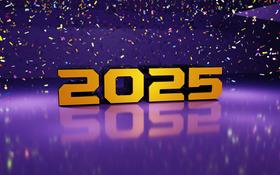For the 2025-26 school year, there are 2 public preschools serving 999 students in 22963, VA.
Public preschools in zipcode 22963 have a diversity score of 0.56, which is less than the Virginia public preschool average of 0.72.
Minority enrollment is 36% of the student body (majority Black), which is less than the Virginia public preschool average of 56% (majority Hispanic and Black).
Best 22963, VA Public Preschools (2025-26)
School
(Math and Reading Proficiency)
(Math and Reading Proficiency)
Location
Quick Facts
Rank: n/an/a
3340 Central Plains Road
Palmyra, VA 22963
(434) 589-8318
Palmyra, VA 22963
(434) 589-8318
Gr: PK-2 | 744 students Student-teacher ratio: 15:1 Minority enrollment: 37%
Rank: n/an/a
3340 Central Plains Road
Palmyra, VA 22963
(434) 510-1016
Palmyra, VA 22963
(434) 510-1016
Gr: PK-K | 255 students Student-teacher ratio: 13:1 Minority enrollment: 36%
22963, Virginia Public Schools (Closed)
School
Location
Quick Facts
563 Wilmington Rd
Palmyra, VA 22963
(434) 589-8613
Palmyra, VA 22963
(434) 589-8613
Gr: K-2 | 114 students Student-teacher ratio: 14:1 Minority enrollment: 41%
479 Cunningham Rd
Palmyra, VA 22963
(434) 842-3197
Palmyra, VA 22963
(434) 842-3197
Gr: K-2 | 191 students Student-teacher ratio: 14:1 Minority enrollment: 35%
Frequently Asked Questions
How many public preschools are located in 22963, VA?
2 public preschools are located in 22963, VA.
What is the racial composition of students in 22963?
22963 public preschools minority enrollment is 36% of the student body (majority Black), which is less than the Virginia public preschools average of 56% (majority Hispanic and Black).
Recent Articles

Texas Schools Enrollment Trends & Policy in 2025
Latest data and policy changes on Texas public school enrollment growth, funding, and virtual education in 2025.

Financial Aid & Hidden Costs in Public Schools
Learn about financial aid and hidden costs in public schools. Discover what parents should budget for beyond tuition-free education.

NYC Schools Still Most Segregated in 2025
Despite reforms, New York City schools remain the most segregated in the U.S. in 2025. Here鈥檚 what parents and educators need to know.
